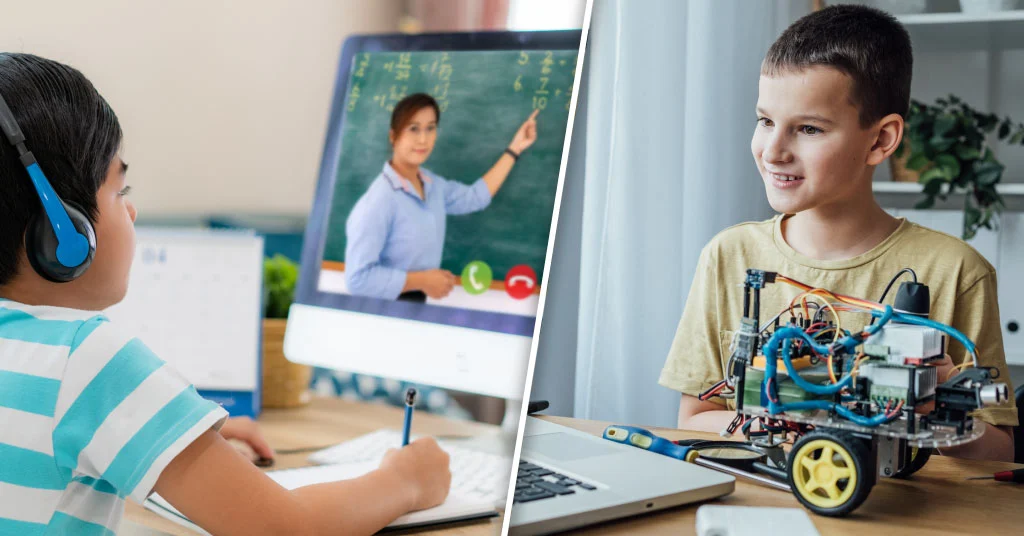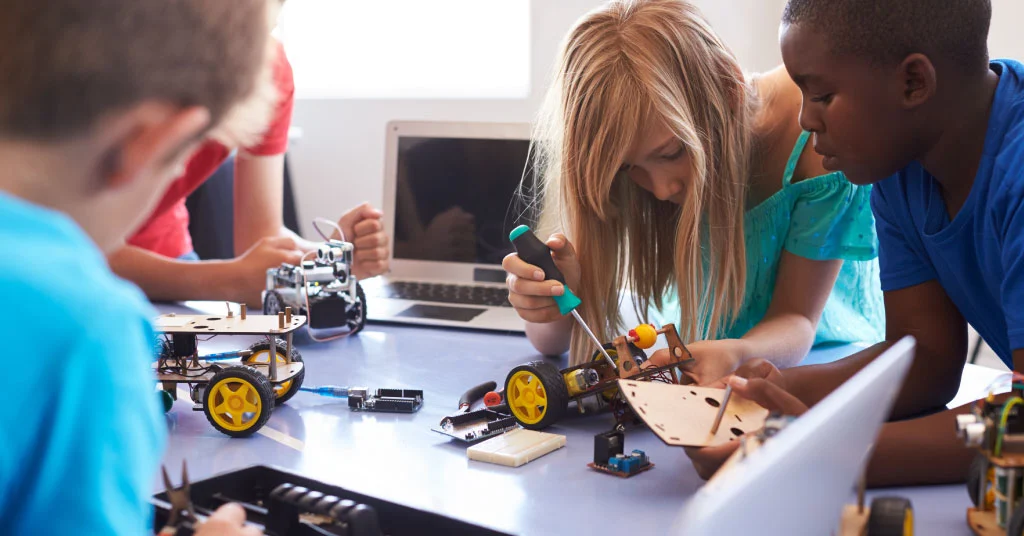
Moonpreneur
STEM Education is a popular and rising concept of the time in the educational sphere. However, the true meaning of STEM Education is still lost on people, especially parents. STEM is an acronym for studies in the fields of Science, Technological, Engineering, and Mathematics.
However, it does not simply refer to education in these four aspects. It follows a wider approach than that. It is an interdisciplinary approach where all the students are taught meaningful skills and learning is student-centric.
National Science Foundation (NSF) speculates that 80% of the jobs in the future would require information on the basics of STEM Education.
Example of the STEM Approach
- STEM Learning is facilitated through Inquiry or Project Based Learning. In this approach, the teacher assigns a real-world problem or an issue to the learners. The learners engage in finding innovative solutions for their problems. These learners then learn team-building skills and develop soft skills. A project involving math, science, and technology, for example, will be more engaging, and meaningful, and result in deeper learning. Such project-based learning approaches will further help with team collaboration and also help to engage in practical skills.
- Another approach to facilitate STEM Learning is an integrated educational approach. In this approach, the traditional method of educational approach is combined with the STEM educational approach. This balances out the retention level and memory along with practical skills. This approach is a great way to integrate STEM because it takes no extra time out of the schedule and is usually much more engaging and delightful. This approach is more likely to help the learning retain through discovery and cross-curricular connections.
Recommended reading: EMPOWERING GIRLS IN STEM EDUCATION: BREAKING BARRIERS
Difference between Traditional and STEM Education
With the development of this modern and revolutionary education method, there can now be contrasts drawn between the traditional method of education and STEM education.
The very first difference lies in the fact that the STEM educational approach offers hands-on knowledge and experience in contrast to learning through repetition in the traditional approach. The second and more important factor that contrasts the two is the future potential of the sectors. Traditional education holds no value in interviews for job opportunities nowadays. On the other hand, STEM education is the mix of the most valuable skills a child should have for the practical world. Therefore, a plethora of job opportunities and prospects are open for students engaged in any field of STEM education.
Advantages of STEM Education
1. Team building
STEM Education helps in building team collaboration. These practical and innovative skills are taught to students of all calibers and levels. This approach uses practical methods.
Therefore, these practical methods help with communication and collaboration among students.
2. Creative Thinking
The STEM Educational approach helps with enhancing the creative skills of an individual. Students engaged in the STEM educational fields are taught to be innovative about their approaches.
3. The STEM Educational approach helps with gaining technological education and also remaining up to date.
The STEM Educational approaches help the students to engage with technology. It helps the students to be equipped with all relevant technical information, and always look forward to newer innovations. These students will have numerous future career opportunities.
4. Development of soft skills
This educational approach helps not only with the development of technical and practical skills but also soft skills. These soft skills include critical thinking, interpersonal relationship, and cognitive abilities.
5. Increase in Media Literacy
The educational approach is student-centered and facilitated through active engagement and participation. This engagement of students is assisted with research and reading. Research and reading lead to an increase in media literacy.
Moonpreneur is on a mission to disrupt traditional education and future-proof the next generation with holistic learning solutions. Its Innovator Program is building tomorrow’s workforce by training students in AI/ML, Robotics, Coding, IoT, and Apps, enabling entrepreneurship through experiential learning.




























